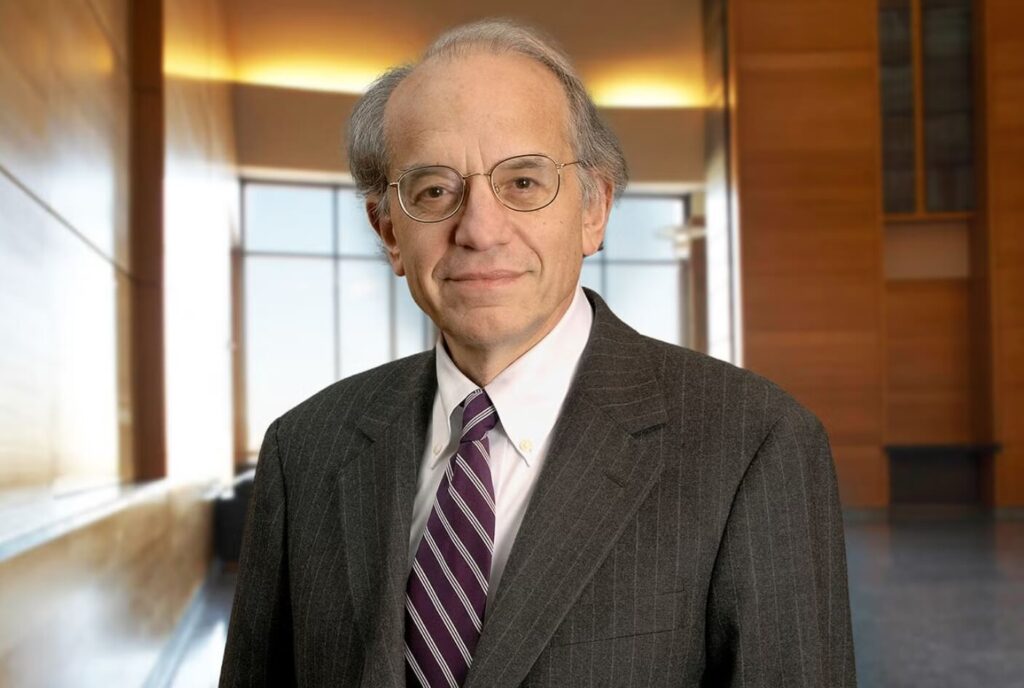Jeremy J. Siegel is one of the most prominent voices in academic finance and a leading advocate for long-term equity investing. As the author of the widely acclaimed Stocks for the Long Run, Siegel has shaped how generations of investors — both amateur and professional — understand the power of historical market trends. Unlike many popular finance authors, Siegel is a trained economist with decades of scholarly work behind him, lending rigor and depth to his analysis. However, his work has also drawn criticism for its unwavering reliance on historical patterns in an increasingly unpredictable market landscape.
👨🏫 Background and Academic Career
Born:
November 14, 1945, Chicago, Illinois, USA
Education:
⦁ B.A. in Mathematics and Economics, Columbia University (1967)
⦁ Ph.D. in Economics, Massachusetts Institute of Technology (MIT), 1971
Siegel began his academic career teaching at the University of Chicago, later joining the faculty at the University of Pennsylvania’s Wharton School, where he remains Professor Emeritus of Finance. At Wharton, he became known for his expertise in macroeconomics, monetary theory, and financial markets, particularly stock performance over long periods.
🧠 Major Achievements and Contributions
📊 Champion of Long-Term Investing
Siegel’s core thesis — that stocks outperform all other asset classes over the long run — is based on decades of historical data, including market returns dating back to the early 19th century. His advocacy for buy-and-hold strategies, diversification, and staying invested through volatility has become a cornerstone of passive investment philosophy.
🧮 Quantitative Depth
As a trained economist, Siegel brings statistical rigor and academic methodology to his work. Stocks for the Long Run is filled with historical datasets, performance charts, and regression analysis — all supporting his belief in the enduring superiority of equities.
🎓 Educator and Public Intellectual
Beyond academia, Siegel has served as an advisor to major investment firms, appeared frequently on financial news networks like CNBC, and written for publications including The Wall Street Journal and Financial Times. He’s also been a consistent voice of optimism, often reassuring investors during market downturns.
📚 Most Influential Work
Stocks for the Long Run (1994–2022)
A widely cited book among investors and academics alike, it has been revised six times to reflect new data and evolving markets. It is praised for its long-view approach to equity investing but also criticized for its reliance on historical precedent and occasional overconfidence in market predictability.
The Future for Investors (2005)
In this follow-up, Siegel explores how long-term demographic and economic trends will shape investment strategies — with a focus on dividends, demographic shifts, and international markets.
⚠️ Criticisms and Limitations
While Siegel’s work is respected for its empirical thoroughness, critics have questioned whether past performance can reliably guide future market behavior. His bullish stance on equities, while historically supported, has been seen by some as overly optimistic — particularly during periods of structural market changes or economic uncertainty.
⦁ Overreliance on History: Critics argue that long-term stock trends do not account for black swan events, technological disruption, or geopolitical instability.
⦁ Dismissal of Alternatives: Siegel downplays the role of emerging asset classes (e.g., crypto, real assets) and underrepresents the practical challenges faced by retail investors.
⦁ Behavioral Gaps: His work, rooted in efficient market theory, sometimes overlooks the psychological and emotional barriers that prevent investors from following rational long-term strategies.
🗣️ Public Voice and Media Presence
Siegel has built a reputation as the “optimist economist” — frequently appearing in media to defend the resilience of U.S. stocks. During the COVID-19 pandemic, for example, he was an early voice predicting a swift market recovery, which, in retrospect, proved accurate but controversial at the time.
He continues to be a go-to commentator for long-term market trends, but his advice often centers more on macro outlooks and historical consistency than on emerging risks or tactical adjustments.
🎯 Legacy and Continuing Influence
Jeremy Siegel’s contributions to finance are both academic and cultural. His research has shaped investment strategy curricula in business schools worldwide, and his writing has given confidence to countless long-term investors.
However, his legacy is a reminder that while history can be a powerful guide, it is not destiny. As financial markets grow more complex and globalized, Siegel’s work may need to be read with a more critical, contextual eye — especially by those looking to navigate a 21st-century investment landscape that doesn’t always play by the old rules.
Whether you view him as a wise professor or a market optimist with blind spots, Siegel’s role in shaping investment thought is undeniable.




